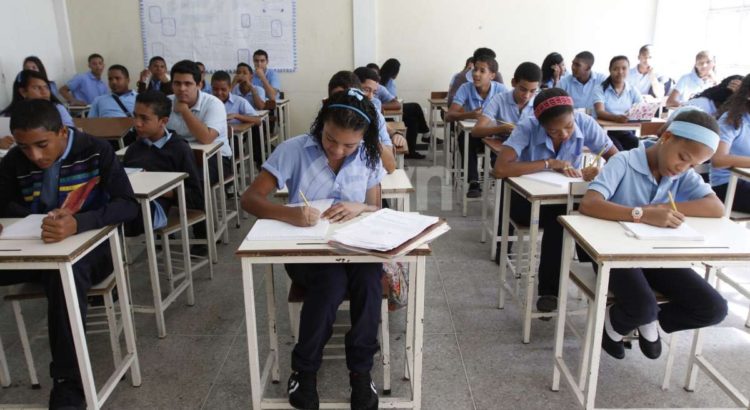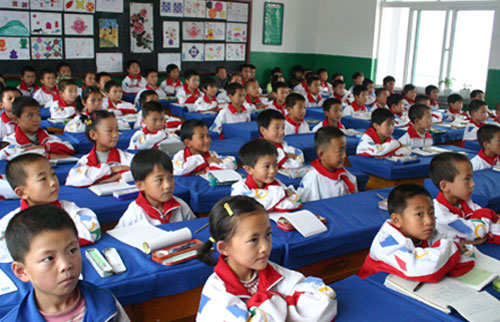Asia/Japón/07 de Agosto de 2016/Autor: JiJi Kyodo/Fuente: The Japan Times
RESUMEN: El Ministerio de Educación pondrá más énfasis en las habilidades de conversación en la enseñanza del Inglés con la esperanza de las personas productoras puedan comunicarse efectivamente en el idioma, según un proyecto de esquema de las directrices del plan de estudios de la escuela. El proyecto incluye mover hasta el año de inicio de la educación Inglés de tercer grado en la escuela primaria a partir del quinto curso. Se dice que las clases de inglés convencionales han estado poniendo énfasis en la gramática y el vocabulario, lo que sugiere que en vez deberían hacer hincapié en la enseñanza de las expresiones apropiadas para diferentes situaciones. El proyecto pone de relieve la necesidad de los estudiantes para aprender todas las habilidades de Inglés – escuchar, leer, escribir y hablar, incluyendo la conversación y presentación – de una manera equilibrada Para lograr este objetivo, las directrices fijarán metas para cada habilidad a través de la escuela primaria con alto y alto, menor, de acuerdo con el Marco Común Europeo de Referencia para las Lenguas, o MCER. El uso de los objetivos establecidos por las directrices, las escuelas establecerán objetivos detallados de rendimiento de los estudiantes.
The education ministry will put more emphasis on conversation skills in teaching English in hopes of producing people who can communicate effectively in the language, according to a draft outline of revised school curriculum guidelines.
The draft includes moving up the starting year for English education to third grade in elementary school from the current fifth.
It says conventional English classes have been placing emphasis on grammar and vocabulary, suggesting that they instead should stress teaching appropriate expressions for different situations.
The draft underscores the need for students to learn all English skills — listening, reading, writing and speaking, including conversation and presentation — in a balanced manner.
To achieve this goal, the guidelines will set goals for each skill through elementary, junior high and high school, in line with the Common European Framework of Reference for Languages, or CEFR.
Using the goals set down by the guidelines, schools will establish detailed achievement targets for students.
The draft also suggests that fifth and sixth graders should learn English as a regular subject, with additional reading and writing in current activity-oriented programs for listening and speaking, with the aim of helping children become more accustomed to English.
At the third- and fourth-grade levels, when the students are still quite young, lessons should focus on introducing English.
The draft requests that the changes should not simply bring forward to elementary school students what junior high school students now learn, but new classes should be created to help students nurture a basic command of English by letting them get used to reading and writing in line with their levels.
To keep students from growing to dislike English, it is important to encourage them to keep a good attitude in trying to use the language, the draft says.
But an elementary school teacher in Shizuoka Prefecture asked, “How many teachers are there who can teach English in a balanced manner, including grammar and pronunciation?”
The ministry plans to proceed with boosting the English education system by using core teachers who are proficient in the language and by improving training courses, but teachers are concerned if this will work well if the proposed curriculum guidelines go into full effect.
The proposals come from an education ministry panel.
It also urges that a new subject called Public be introduced in high schools to deal with topics such as political participation and labor issues. This is in response to the recent lowering of the voting age to 18.
Another new compulsory high school subject, History in General, would concentrate on modern Japanese and world history.
On the back of progress in information technology, the panel proposed introducing programming education from elementary through high school. Pupils in elementary school would learn logical thinking in relation with programming, while junior high and high school students would learn programming technology.
In elementary schools, “active learning,” a method of education in which students themselves take the initiative in coursework, would be introduced in all courses.
The new curriculum guidelines are expected to be implemented for elementary schools in the 2020 academic year, junior high schools in the 2021 academic year and high schools in the 2022 academic year or later.
The panel is planning to conclude discussions by the end of August and submit its proposed guidelines to the government later this year.
School curriculum guidelines are reviewed about every 10 years because teaching priorities are viewed as changing in line with society.
The current curriculum guidelines were created to break away from the government’s relaxed education policy, which was criticized as having spurred a decline in students’ academic skills.
Fuente: http://www.japantimes.co.jp/news/2016/08/01/national/education-ministry-wants-emphasis-english-conversation-skills/#.V6Zg8RJGT_s
Fuente de la imagen: http://www.gnlglobal.com/mercados/asia/precio-del-gnl-en-japon-cayo-al-nivel-mas-bajo-durante-junio/attachment/bandera-de-japon/














 Users Today : 16
Users Today : 16 Total Users : 35460319
Total Users : 35460319 Views Today : 19
Views Today : 19 Total views : 3419047
Total views : 3419047